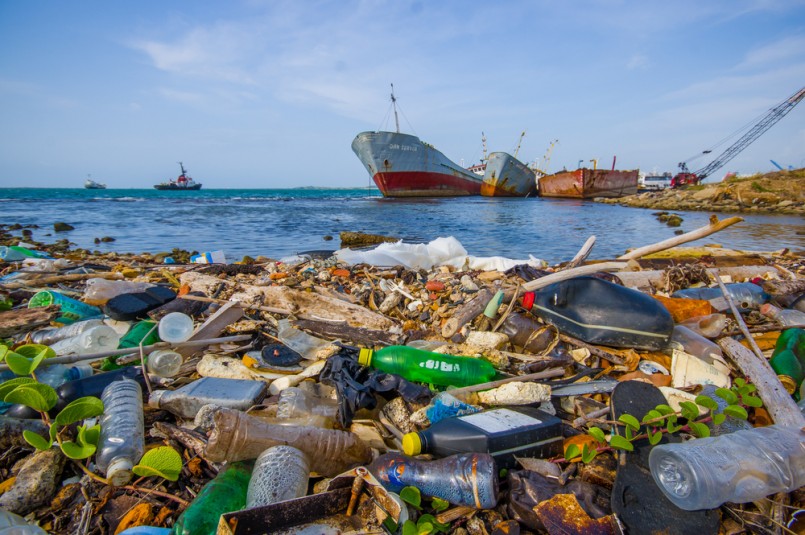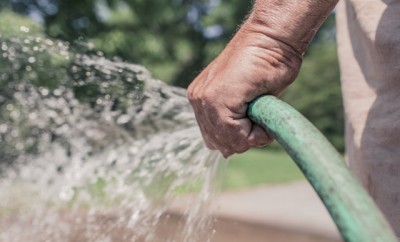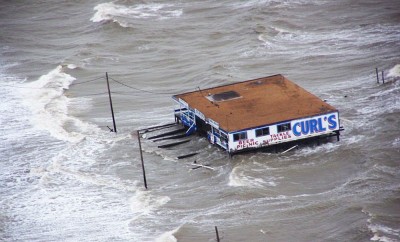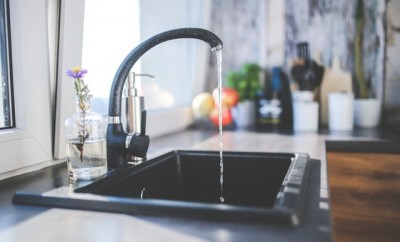Environment
In 2050 We’ll Have More Plastic In The Ocean Than Fish
In 2050 We’ll Have More Plastic In The Ocean Than Fish
With the recent legislation banning plastic bags and microbeads, you’ve surely heard that plastic is bad for the environment. But, do you know why? A few of the most common complaints against plastic are that it’s hard to dispose of, pollutes the ocean and it throws off the ecosystem as it causes sickness and sometimes death of animals that ingest it. Environmental campaigns constantly encourage us to recycle, reduce, reuse, but it’s not enough.
Recycle, Reduce And Reuse Won’t Solve The Plastic Problem
A joint paper between Los Angeles-based Five Gyres Institute and international environmental organizations found that there are more than 5,000,000,000,000 pieces of plastic afloat in oceans throughout the world. A recent report by the World Economic Forum details that we’re more likely to have plastic in the ocean than fish in 2050.
It’s also important to remember that a lot of good products that are created with plastic don’t have viable alternatives. Laptops, pacemakers and safety helmets—yep, it’s plastic! Ceasing plastic production and use immediately would leave us without essential medical and safety devices.
Solutions To Plastic Pollution
In light of the fact that we still need plastic, there are things every person can do to reduce the impact of plastics. Yes, recycle, reduce and reuse are three of those things (every bit helps). But, on a global scale, we can support initiatives that will ultimately reduce our dependency on the material and its impact on our environment.
Creating Plastic Alternatives
Since we need plastic and it won’t disintegrate completely for more than 450 years, we need projects that reuse plastic in bulk in long-term sustainable ways. From lighting fixtures and furniture to carports, boats and even homes, BoredPanda recently logged 20+ ways that plastic bottles are being used throughout the world. Plastic can be used around the world for simple boats, carports and temporary homes for displaced individuals.
It’s equally important to consider alternatives to plastic. Plastic is considered valuable for its durability and longevity which has made it very popular, particularly in the medical world. Without an alternative to plastic catheters, pacemakers and surgical instruments, we’ll have to keep using the material. Scientists are already researching alternatives with PCL (polycaprolactone), polyesters considered a viable alternative for plastic stitches and biomedical devices.
Banning Wasteful Plastic With Legislation
We should also support legislation that bans use of plastics when there are viable alternatives. Alaska, Maine, California and Massachusetts are just a few states that have issued plastic bag bans and surcharges for using plastic and paper bags in the grocery store. Reusable canvas bags have eliminated the need for plastic and paper bags in stores all together. In December, President Obama signed a proposal into law which bans the use of plastic microbeads, commonly used in scrubs. There are many viable alternatives to microbead scrubs made of salts, coffee grounds, sugar and other compostable items. Before purchasing an item containing plastic, ask yourself if there is a non-plastic alternative.
Supporting Grassroots Campaigns
One of the most effective ways to do our part is spread awareness and support grassroots efforts. A recent crowdfunding campaign for Ocean Cleanup by a 21 year-old Dutch entrepreneur raised more than $80,000. Though you may not propose a plastic banning bill, raise thousands of dollars for research or invent a plastic alternative, sharing the problems of plastics and solutions could be the catalyst that inspires the next plastic-reducing genius.






0 comments